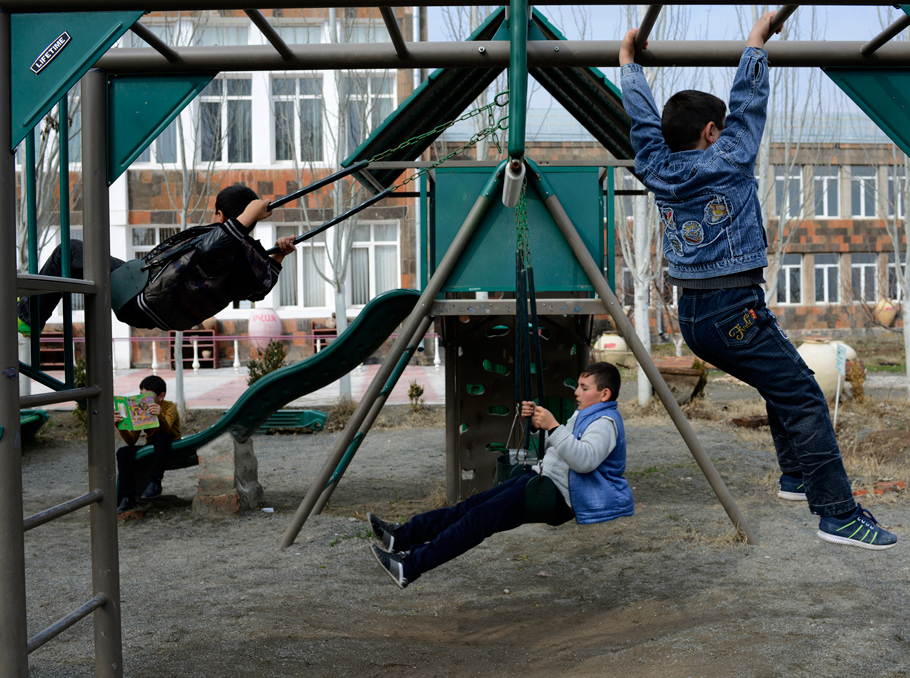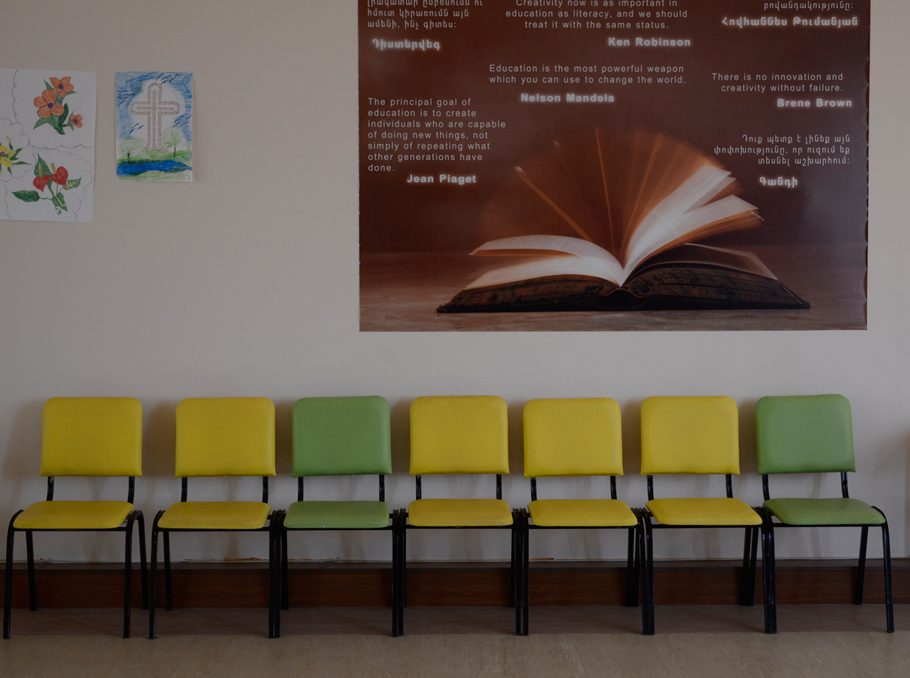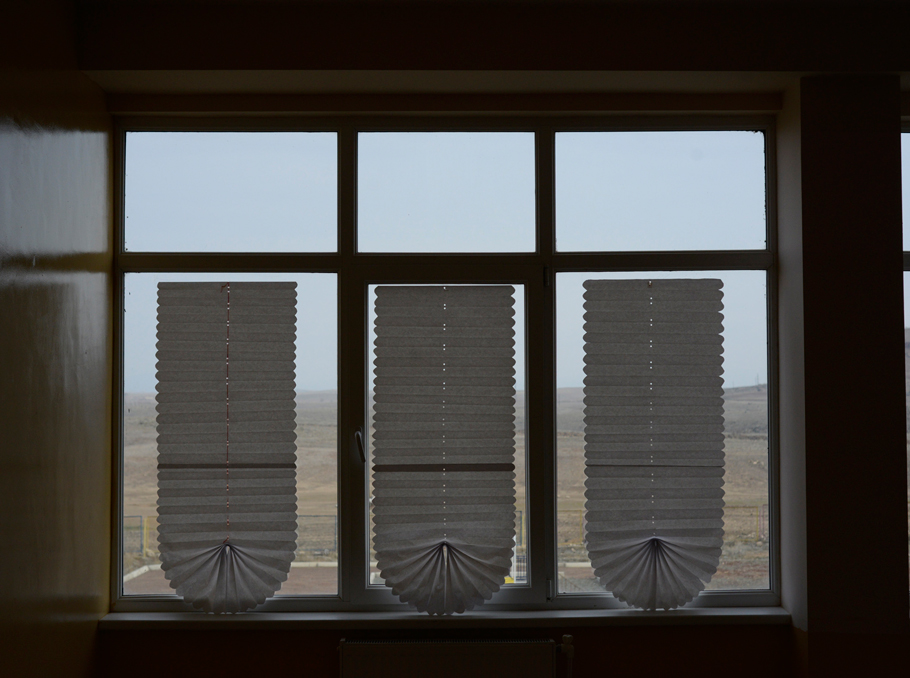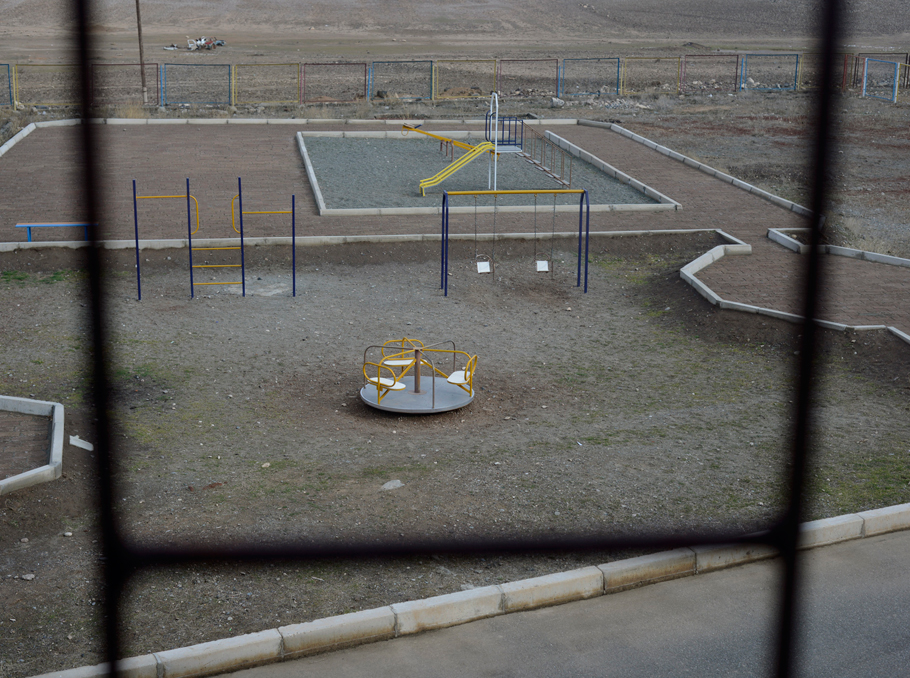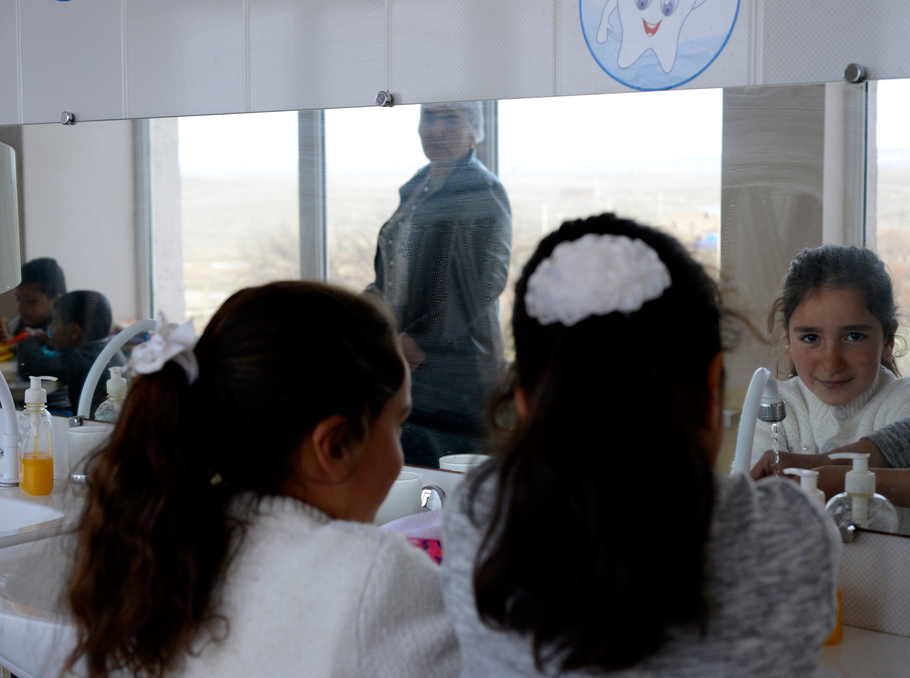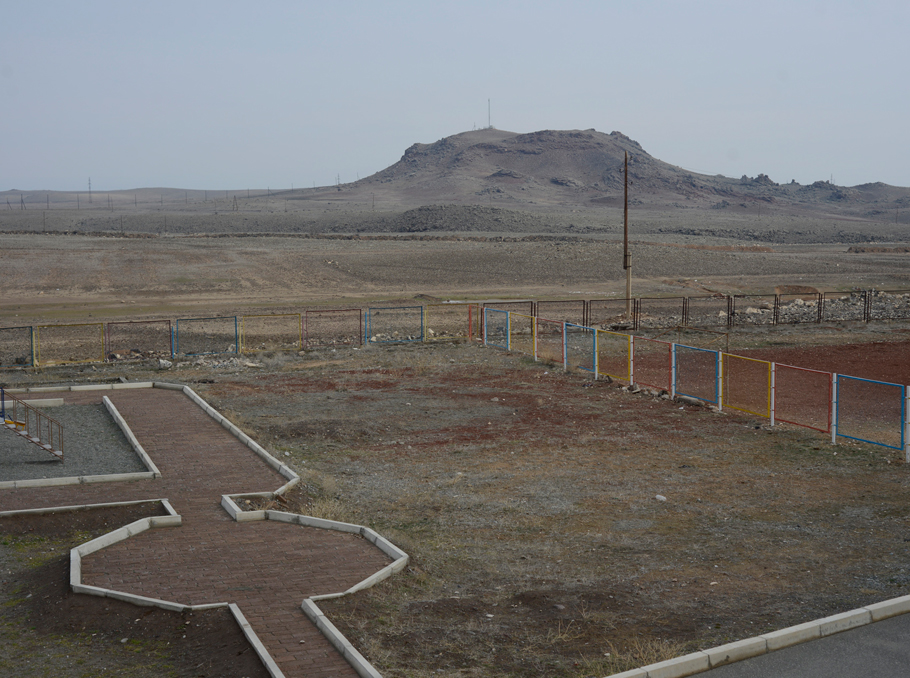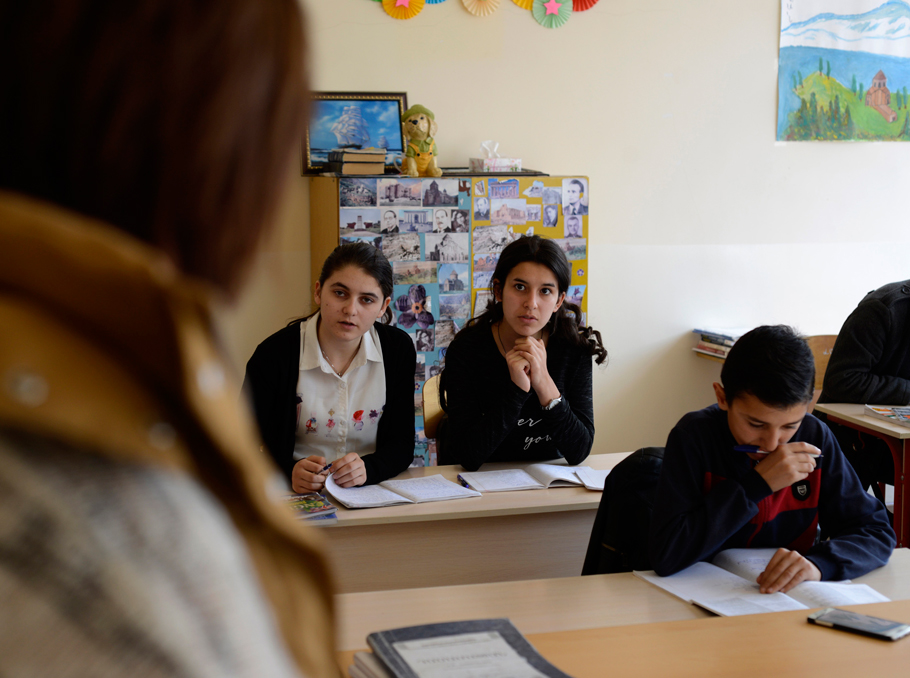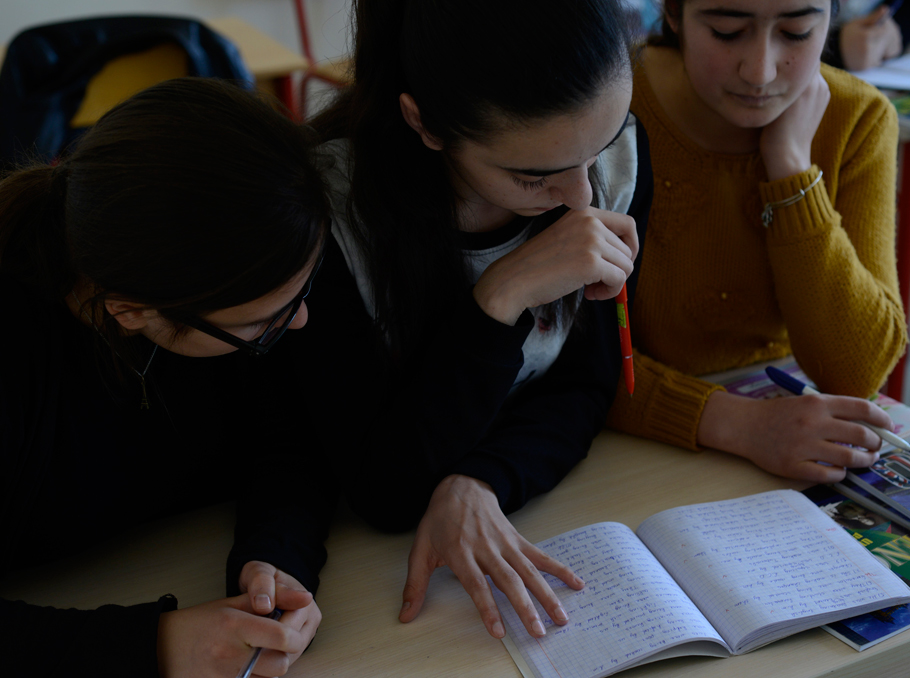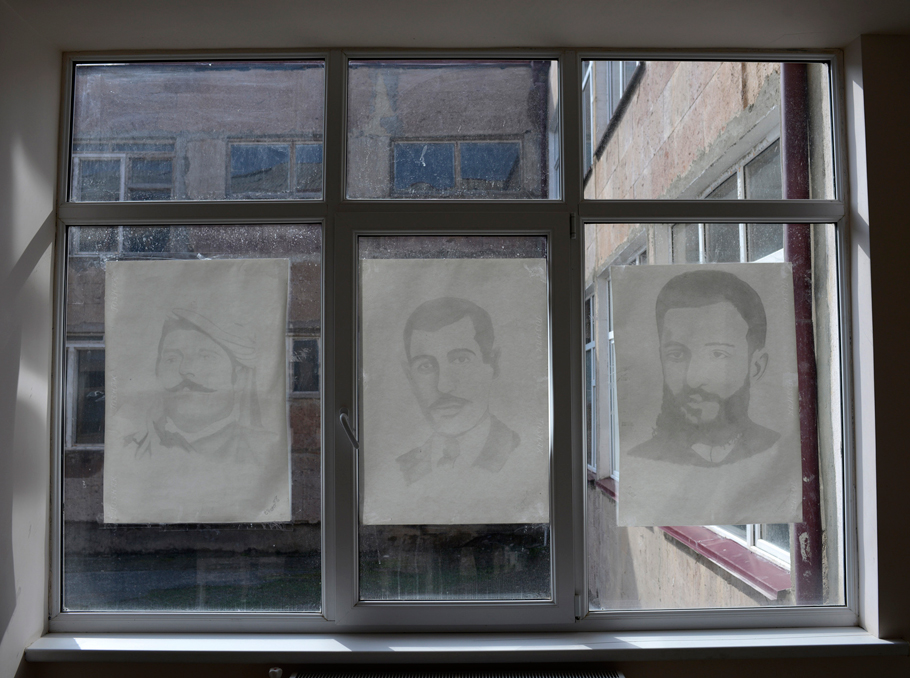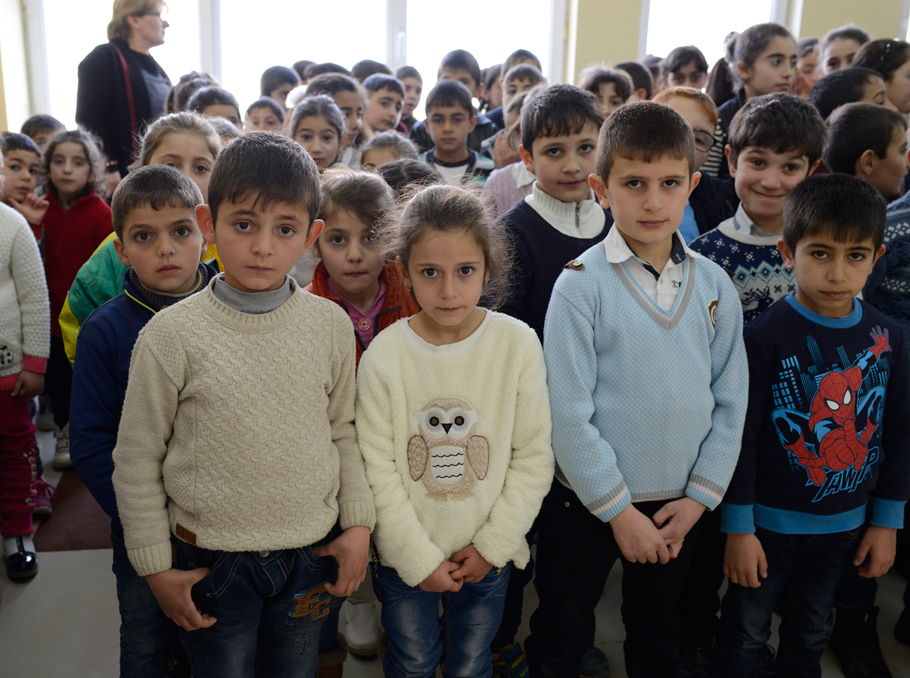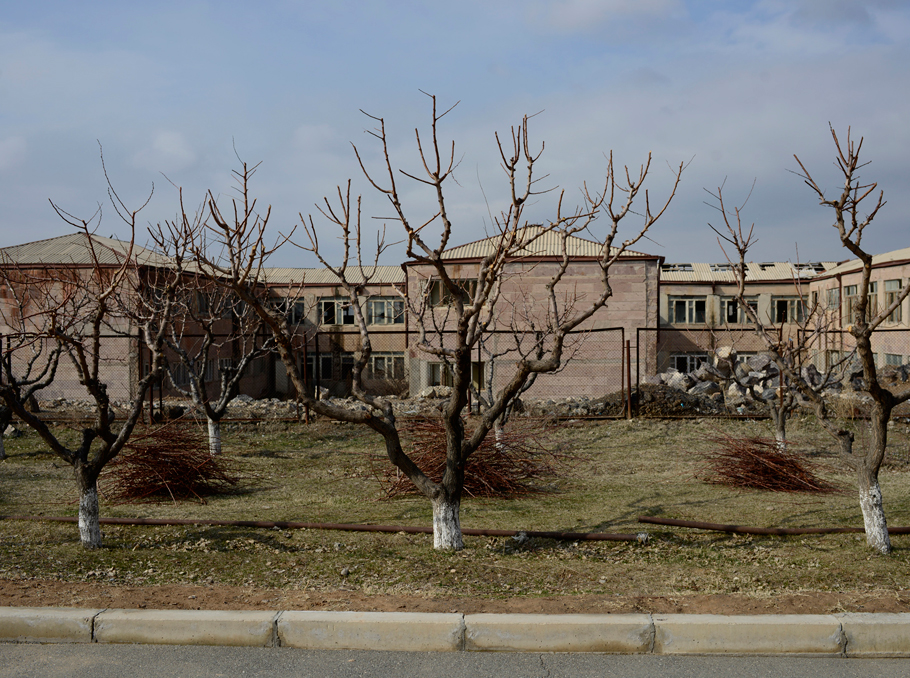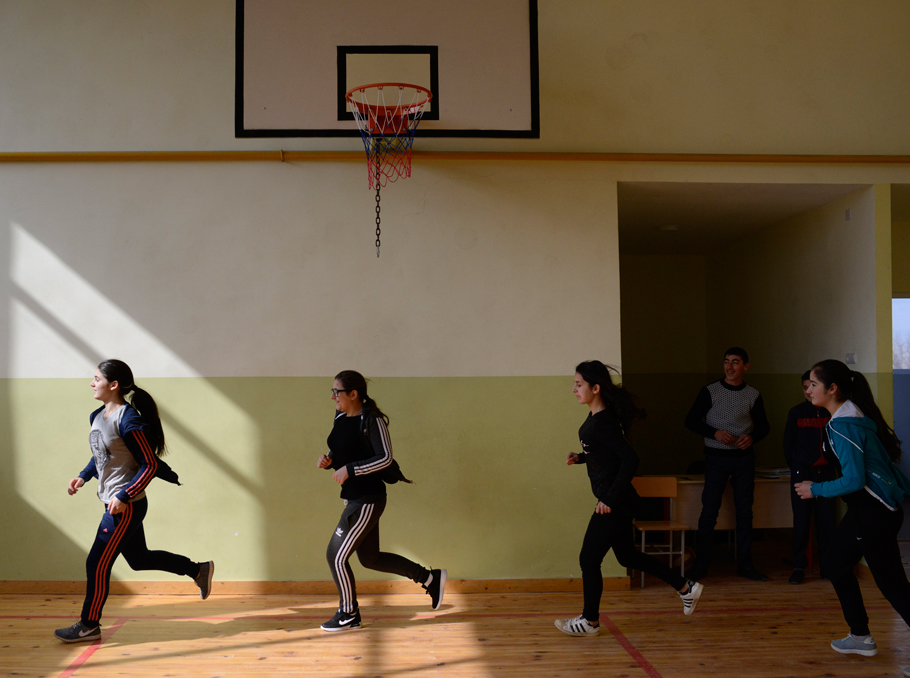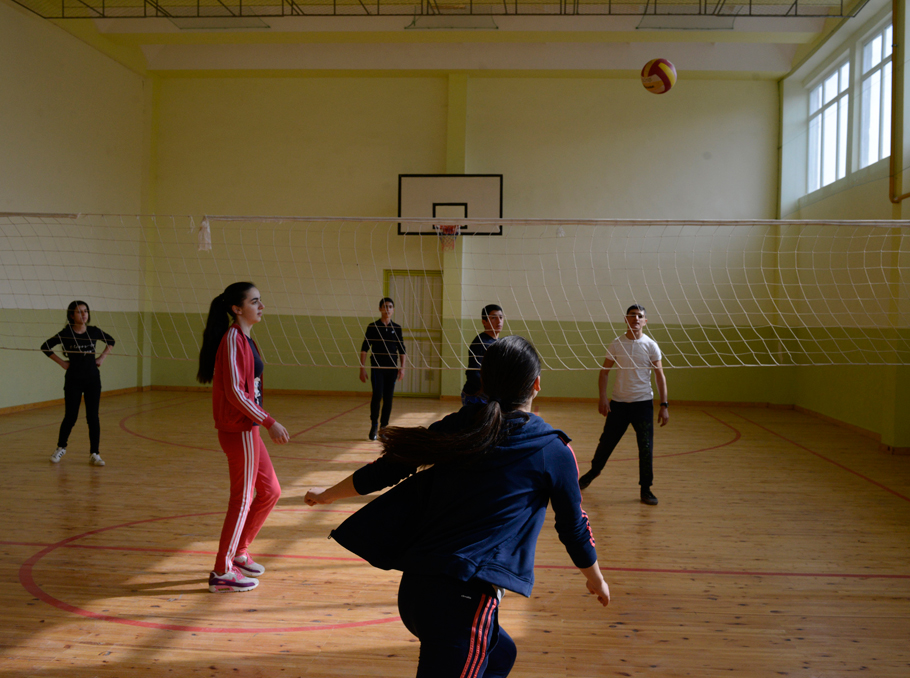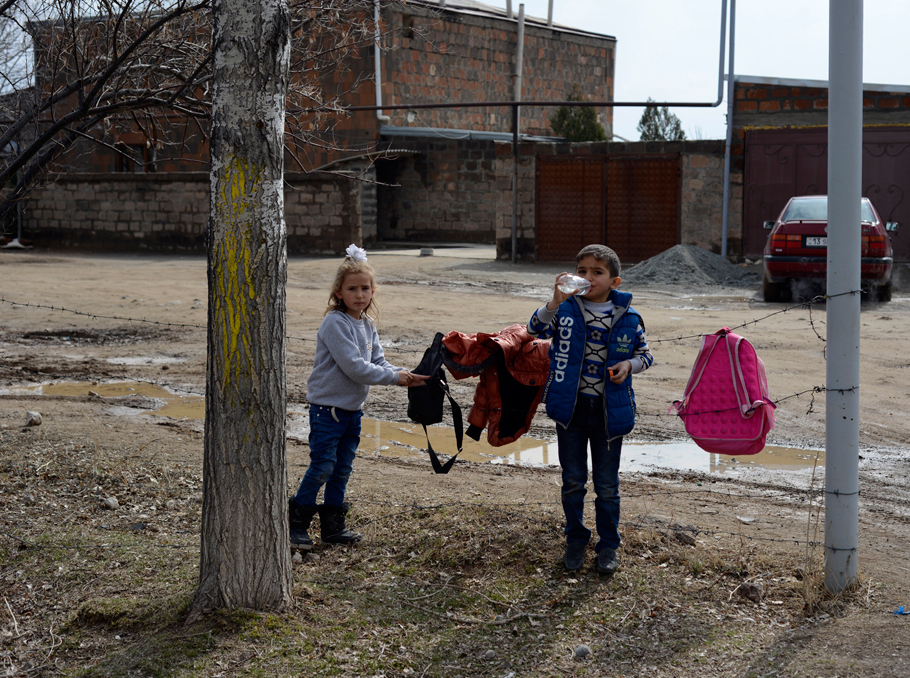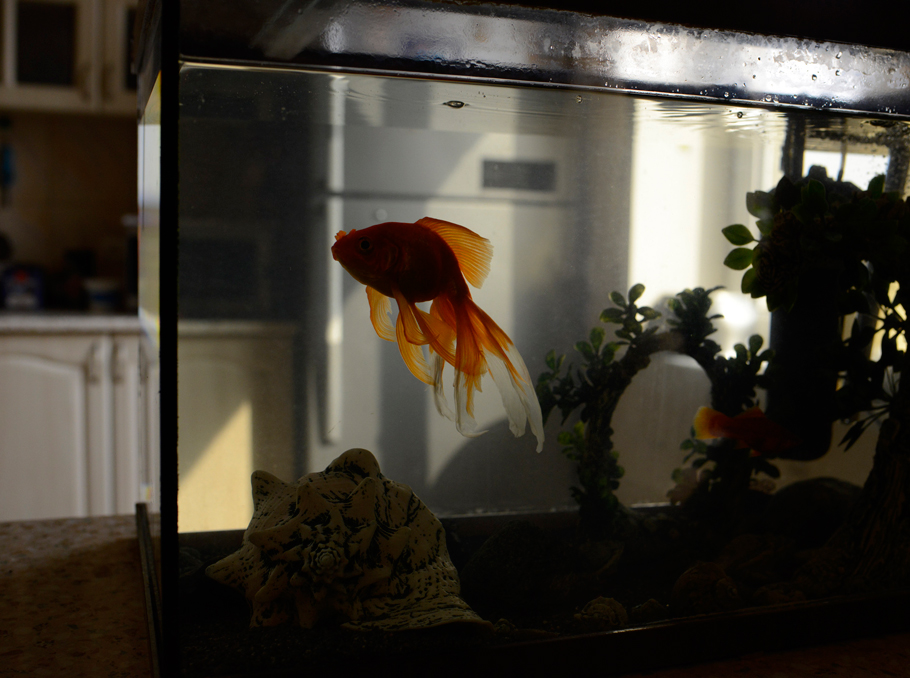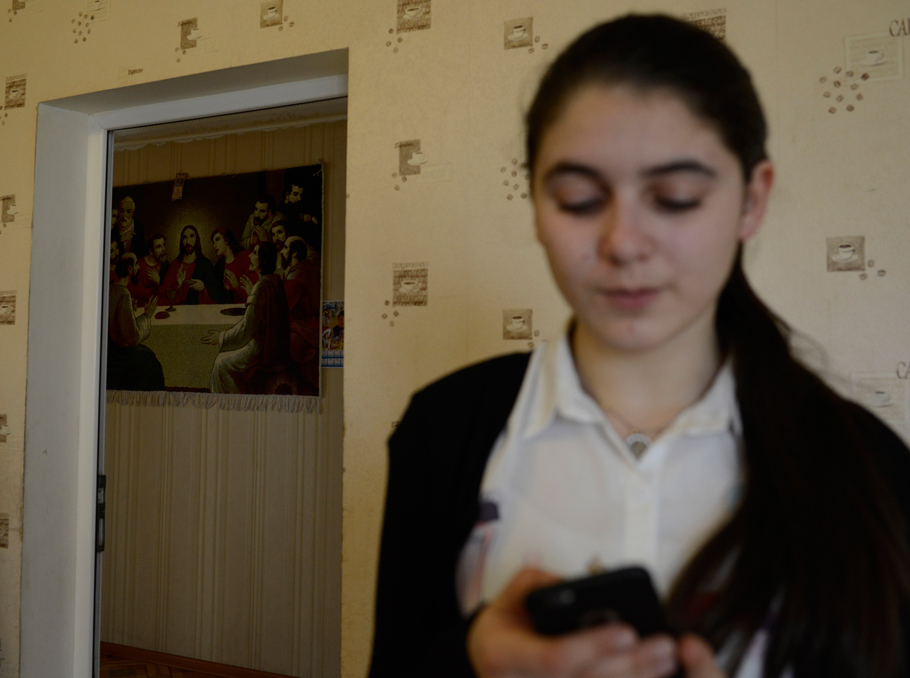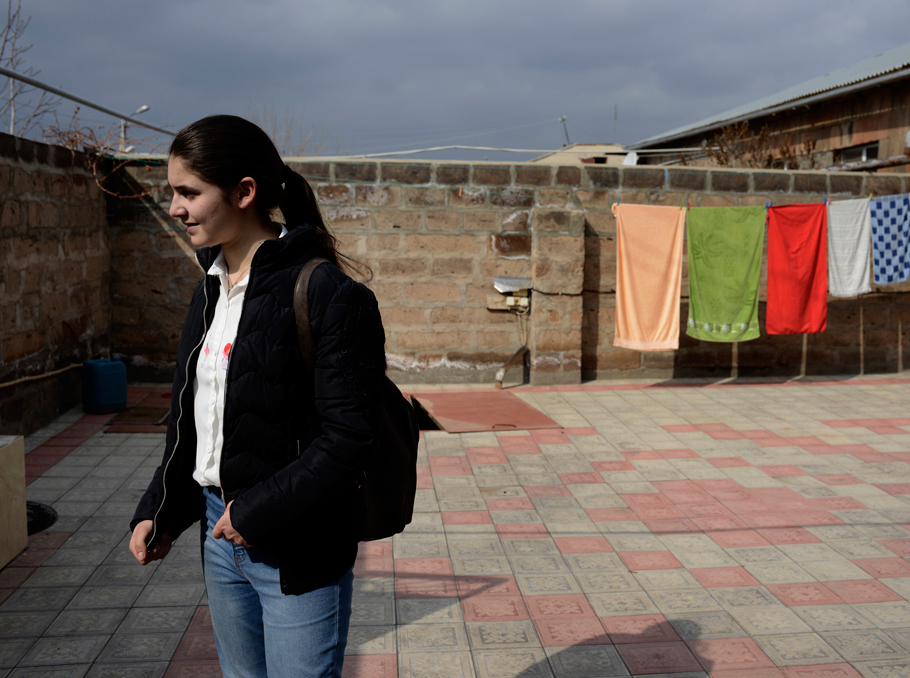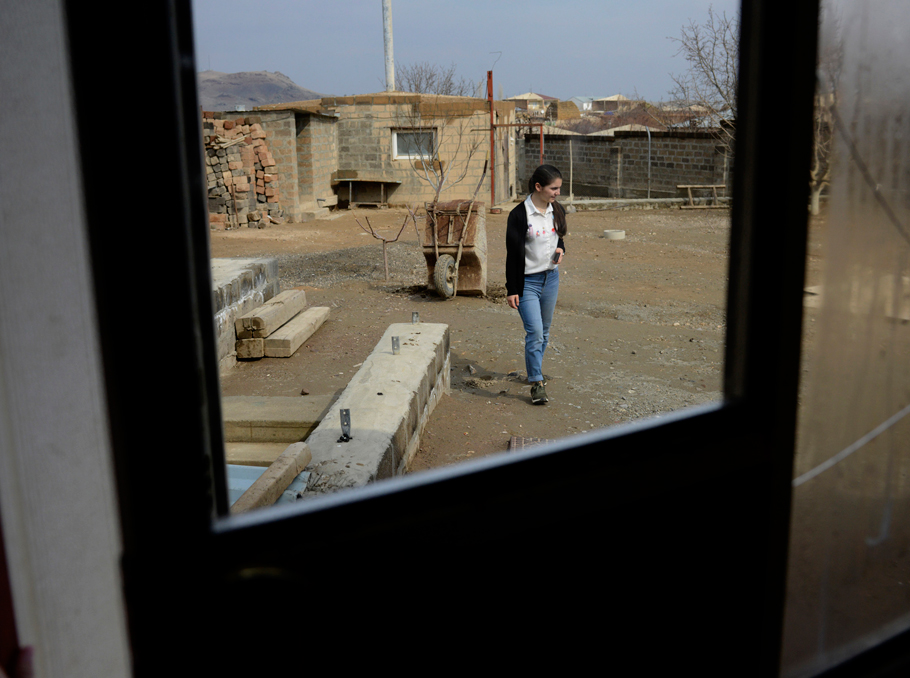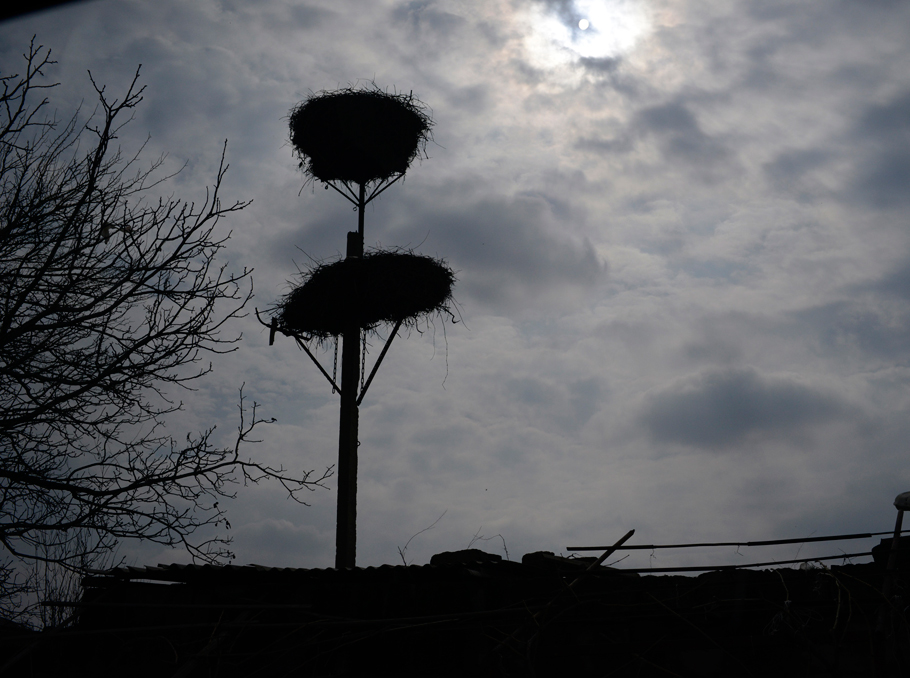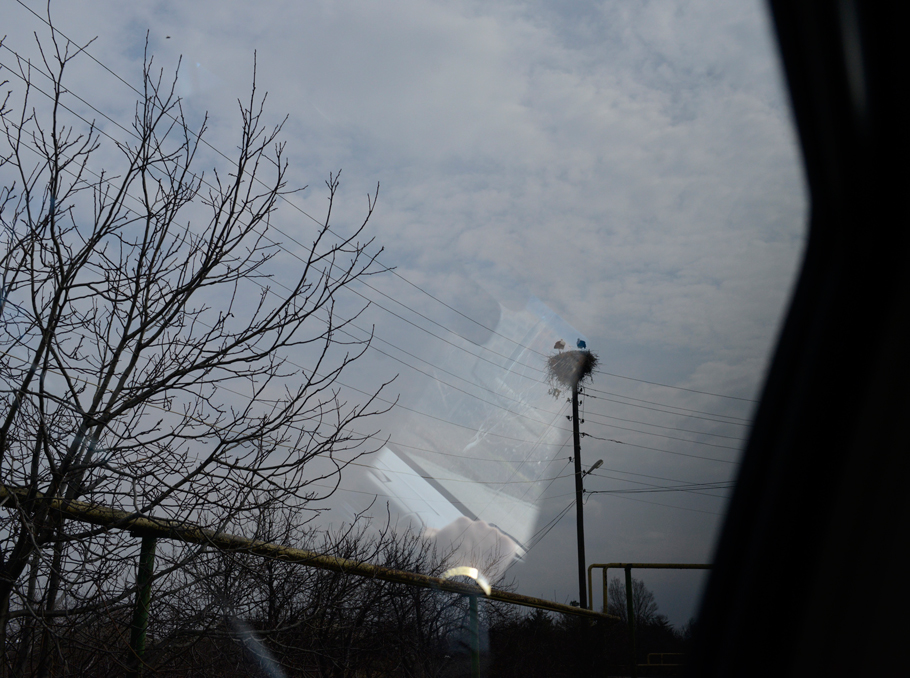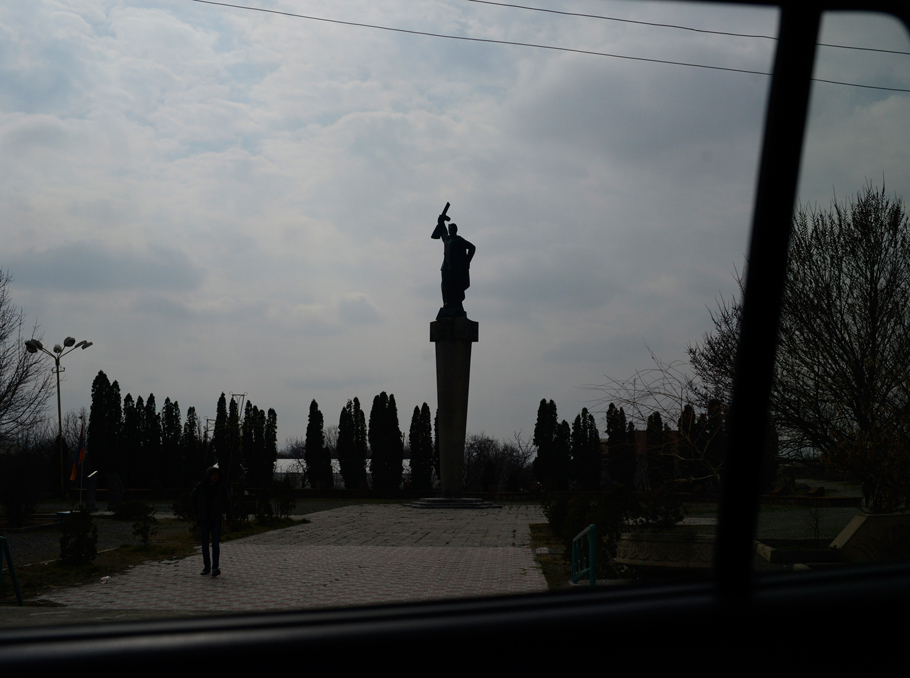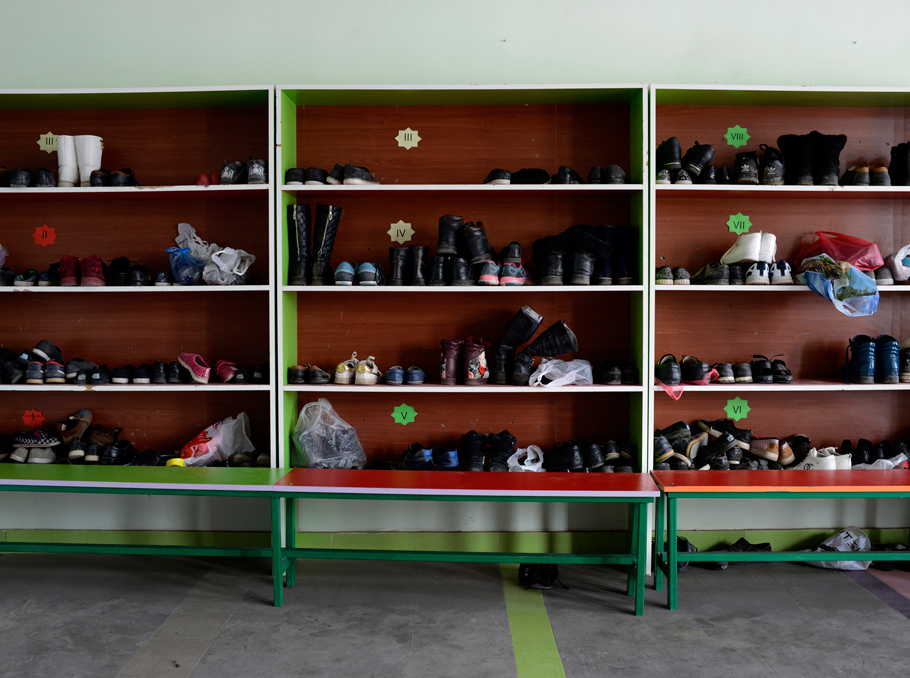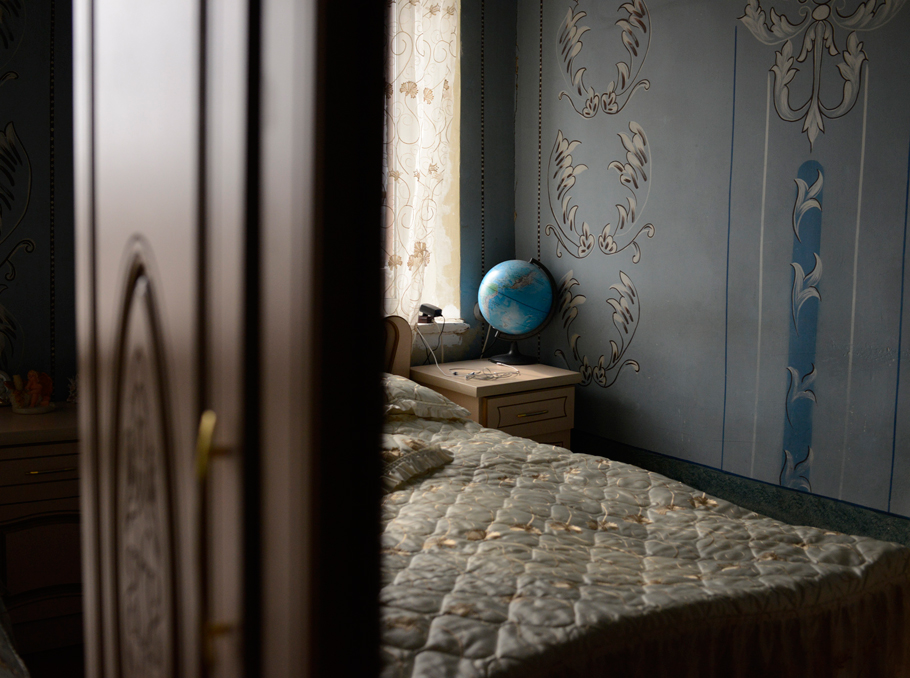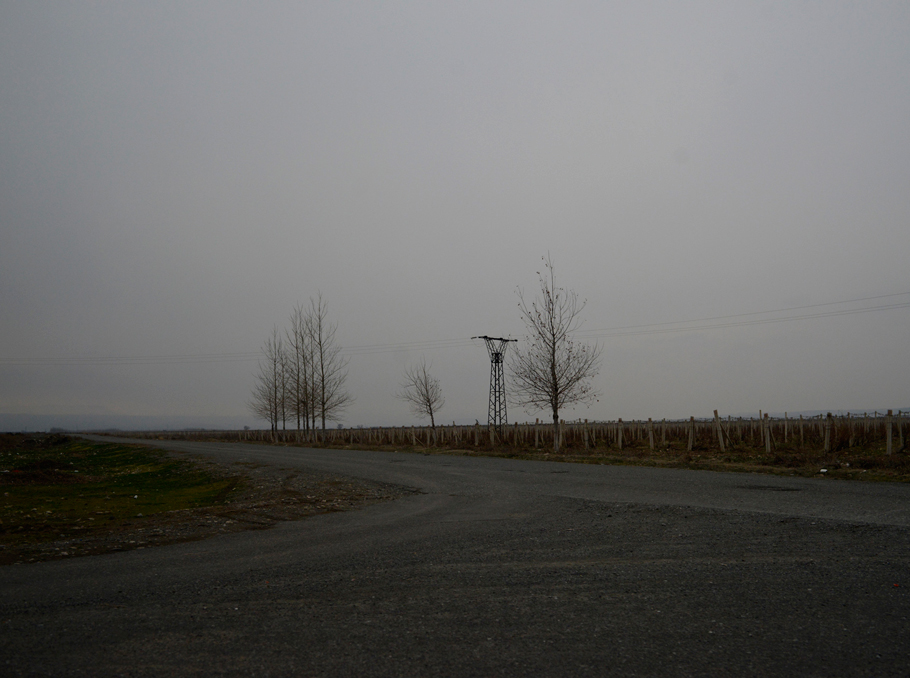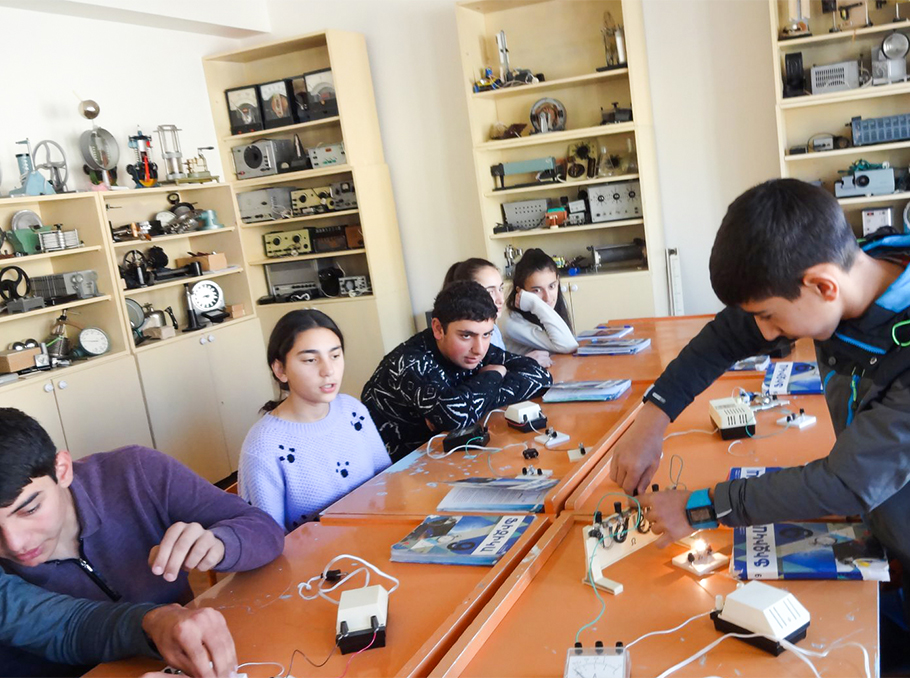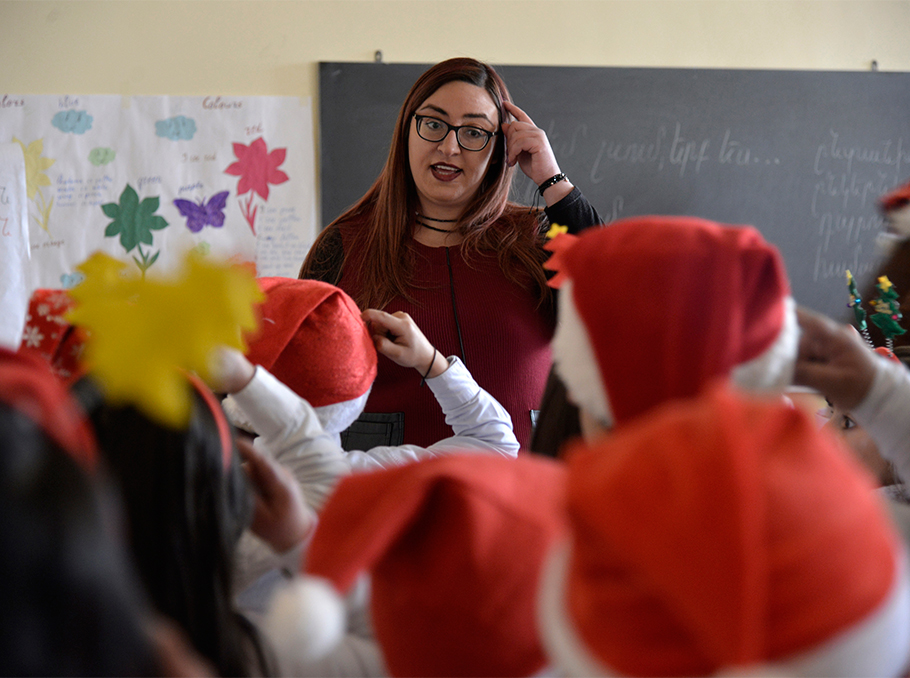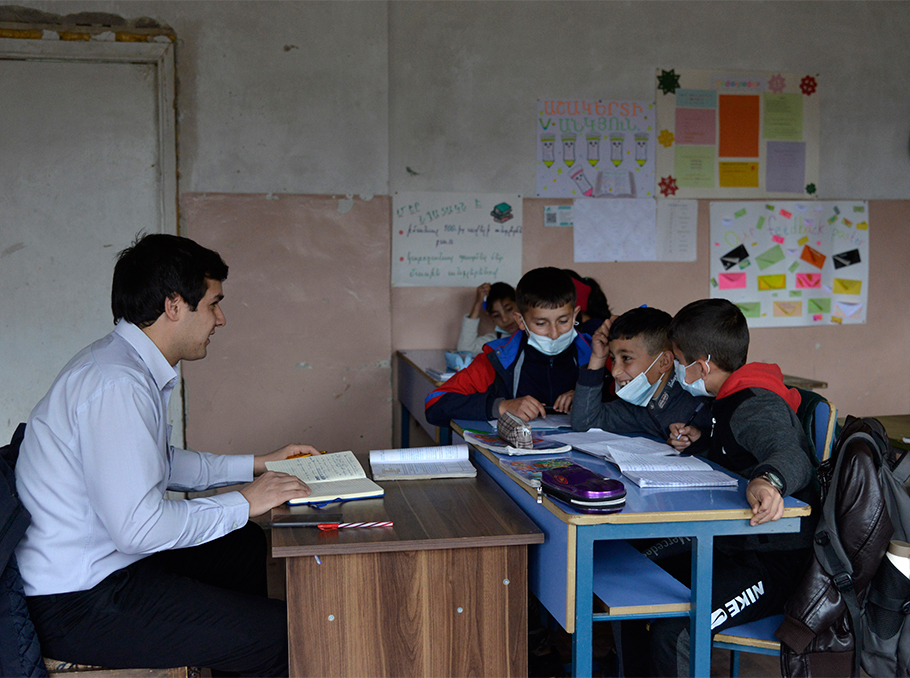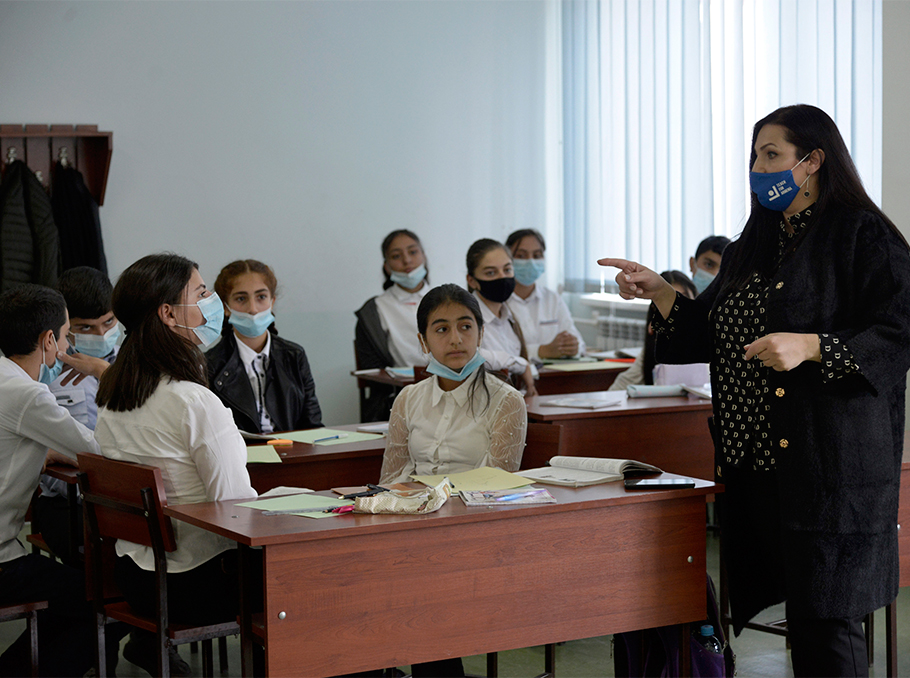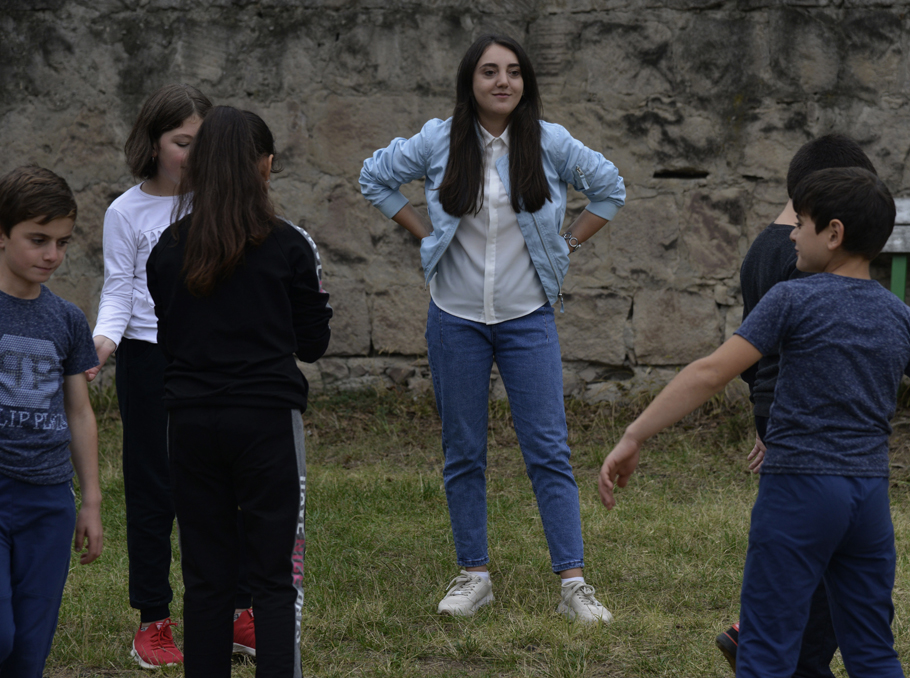“Do you want coffee or Indian tea?” asks Burastan when we finished filming in the school and returned home (her and her mother by car, and I by foot to stay out of the photos).
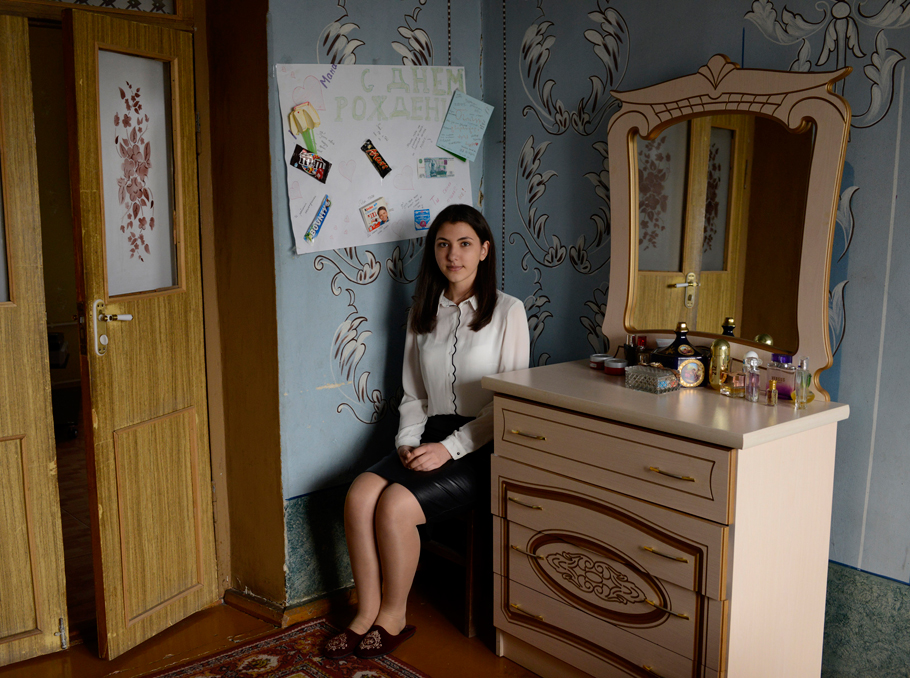
Photo: Vaghinak Ghazaryan/Mediamax
The talk about India has become Burastan’s constant companion in recent days. She just came back from Mumbai, where she attended the Kids. Education. Revolution Conference. 100 revolutionary-minded students (mostly from India) and guests from different countries along with experts from the education sector gathered to try and reimagine education through cooperation, by listening and learning from each other.
The Kids. Education. Revolution Conference, organized by Teach For India, sent an invitation to Teach For Armenia as well, and the program’s Fellows that are teaching in Armenian marzes (regions) suggested their students with leadership skills and fluency in English to give it a go.
Two students were selected from villages in Armavir marz (region) for the trip to Mumbai: Burastan Grigoryan of Getashen and Diana Khlghatyan of Vanand.
The girls traveled to India through Qatar. They knew about India only from films and seeing the real country was slightly shocking for them.
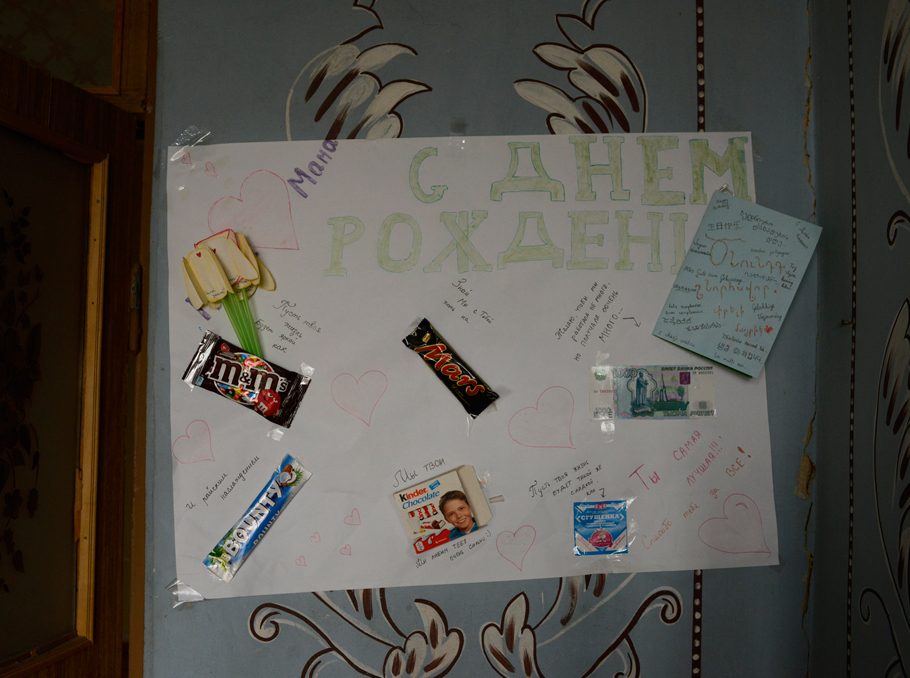
Photo: Vaghinak Ghazaryan/Mediamax
“I used to live in Ukraine and communicated with people of various nationalities, so I thought it would be easy for me to travel, but when we arrived in India, I realized the culture was very different and unique. The first few days gave me mixed impressions – India seemed a country of extreme contrasts. We went to poor neighborhoods first and saw the conditions people live in there: hygiene and education are a problem, but despite everything, people are very open and friendly.
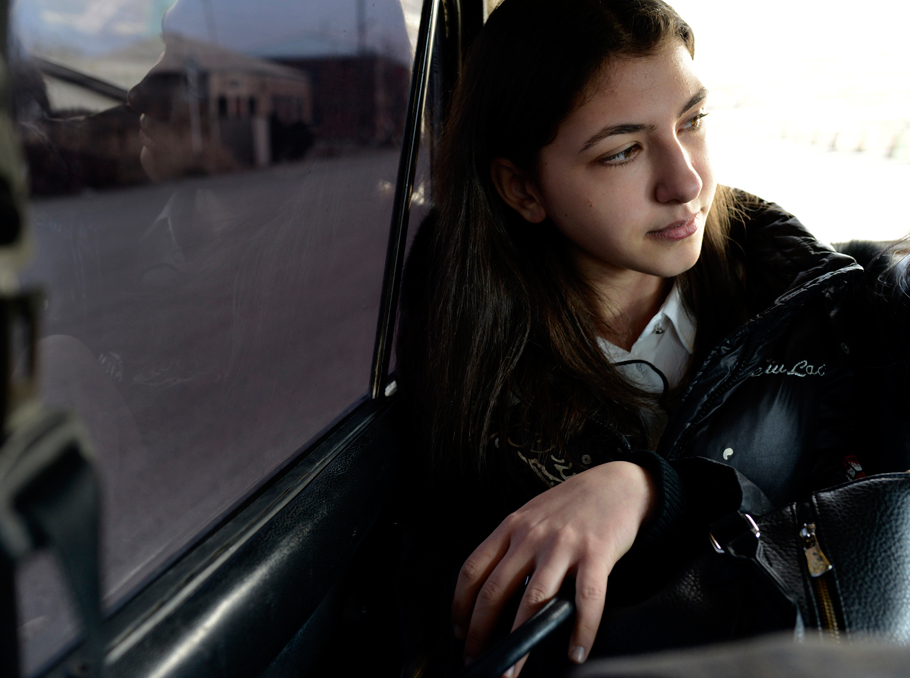
Photo: Vaghinak Ghazaryan/Mediamax
We divided into groups and interviewed local residents about the meaning of education. We found out that many people there could not get education, although they really wanted to. Later we shared the results of our little survey and our impressions, and discussed current issues in education sector and how we can find solutions. It is very important to identify the problems and try to fix them.”
While Burastan and I are talking about the trip in the empty classroom, Ms. Vardumyan peeks through the gap in the doorway, then goes back to playing table tennis with the students.
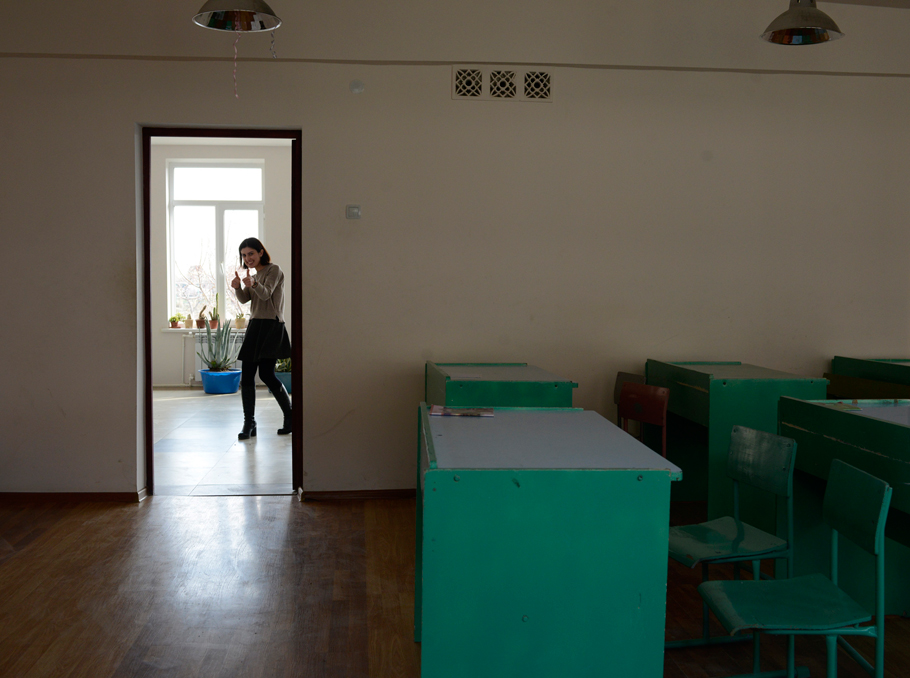
Photo: Vaghinak Ghazaryan/Mediamax
Lusine Vardumyan is a Fellow at Teach For Armenia. She has worked as a special education teacher in Getashen since September 2017 and headed FLOmaster book club, where she and the students select, read and discuss books together. Burastan is an active member of the club, she applied for the conference in Mumbai following the suggestion of Ms. Vardumyan.
For the other girl, Diana, the clash of cultures felt as strong as Burastan, but she notes that insufficient knowledge of English was the biggest problem for her. Diana is the President of Students’ Council in Vanand’s school, one of the best and the most active students, but in India she realized she still had a lot to learn.
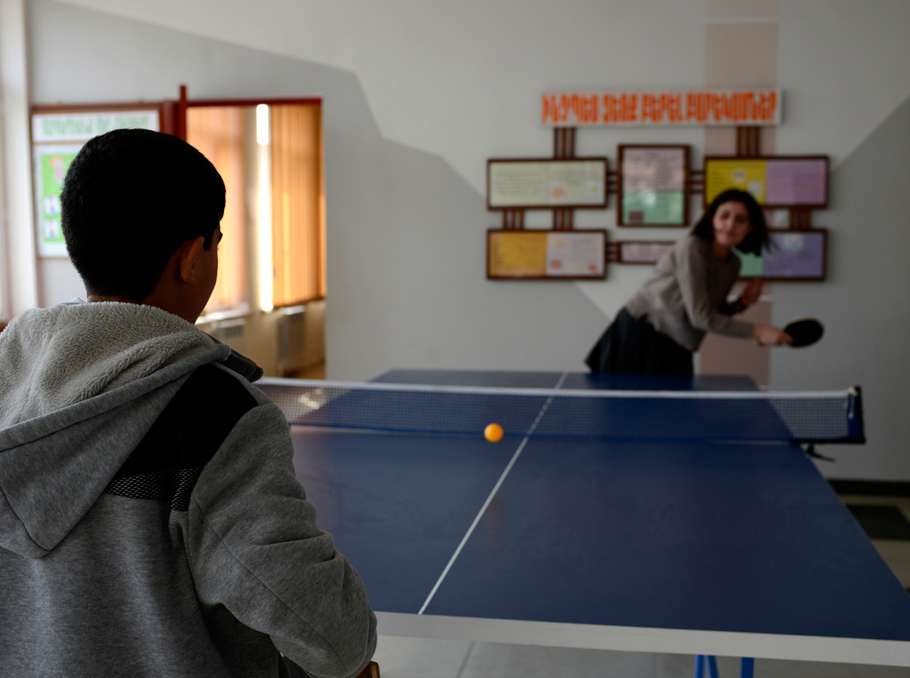
Photo: Vaghinak Ghazaryan/Mediamax
“I had many thoughts and ideas to share, but sometimes I found it difficult because of the language barrier. Mrs. Hripsime (Leadership Development Manager at Teach For Armenia, Hripsime Khanzadyan - Mediamax) helped me and so did other kids. They were very supportive and tried to understand everything I was saying.
It was one of the biggest challenges of my life, a really big test. I had moments of disappointment, I even cried, but then I thought that we should strive for more and be unafraid of difficulties instead of giving up. I’ve already talked with my friends about the trip, told them we need to learn harder to speak English,” says Diana.
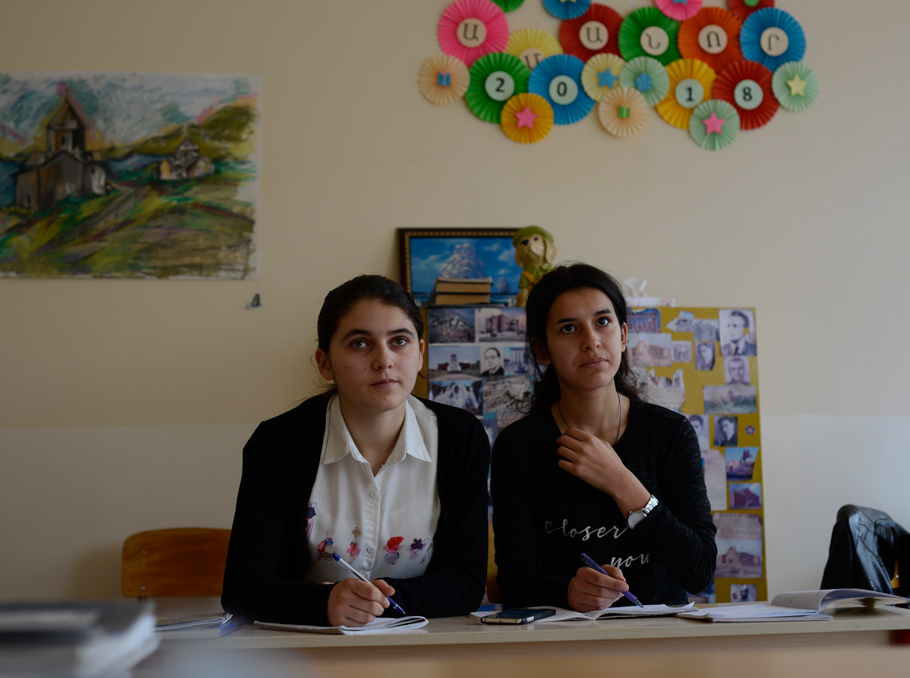
Photo: Vaghinak Ghazaryan/Mediamax
Diana’s week in India also meant seven days of excitement and worry for her English teacher, Nare Ghazaryan. She has been working in Vanand as Fellow of Teach For Armenia for two years now and she knows that is not enough to teach the kids to speak fluent English. Nevertheless, she encouraged Diana to apply. She was certain that Diana would learn a lot far from her loved ones and the comfortable environment.
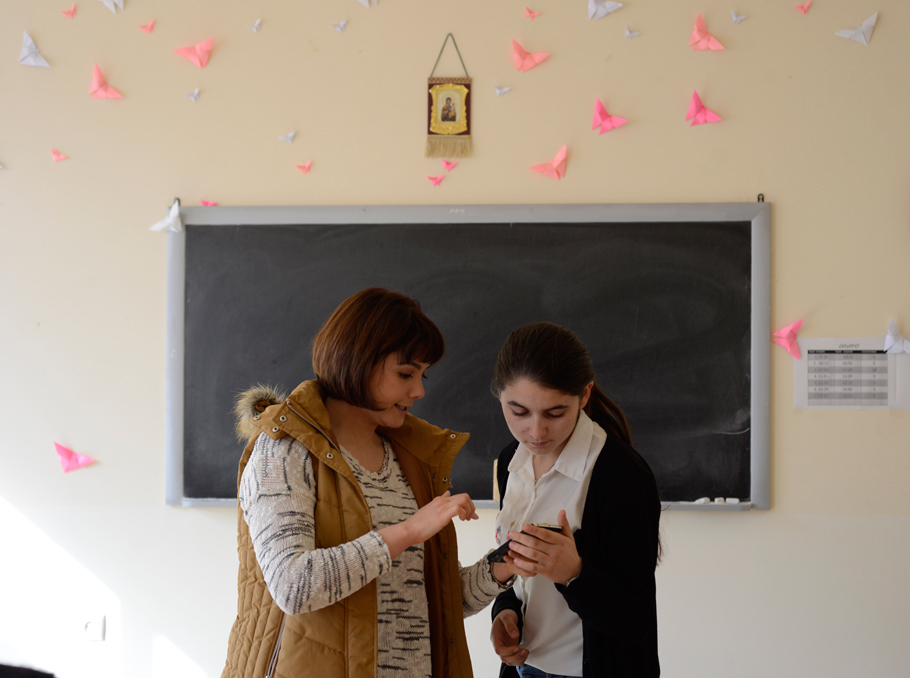
Photo: Vaghinak Ghazaryan/Mediamax
“I grew up in Qajaran, so I know the ‘small town syndrome’. It seems that your town is the whole world, a small kingdom, and there is nothing beyond it. I wanted so much at least one of my students to see and tell others that life is not just in Vanand, Yerevan and Armenia, but all over the world, and they could have a life anywhere.
When you’re a leader in some place, you think you’re a leader everywhere. You need to see and feel there are other levels. I usually bring up my example. I was a leader in my school, a very active and initiative girl. Then I went to the university and at some point, I broke down, because when you are always praised and told you’re good, going to a different environment and seeing it is not always true is hard.
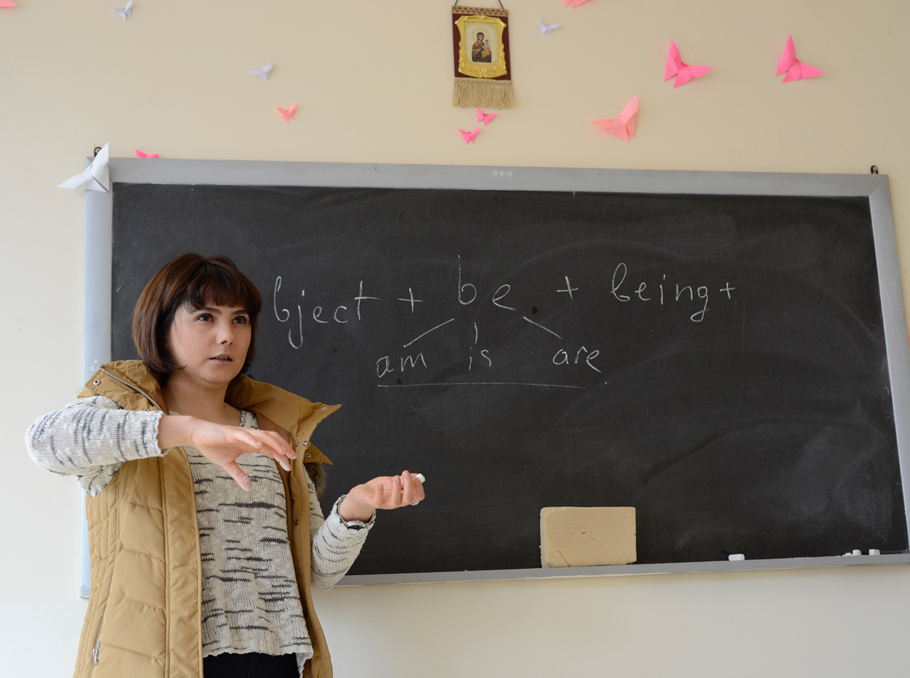
Photo: Vaghinak Ghazaryan/Mediamax
We constantly talk about the growth and the necessity to seek more. However, when the school is provided with favorable conditions, and you are among its leaders, it’s sometimes difficult to understand that there is still potential for progress. When you achieve certain level, you may get caught in a trap and be satisfied with your current successes. I wanted them to see the world from a different perspective.”
Every child has the potential to positively contribute to the world. This was the key idea in Kids. Education. Revolution. Conference. To discover this potential and move it in the right direction the specialists teach students how to write inspirational stories, voice their opinions, as well as implement community programs, develop critical thinking and imagination.
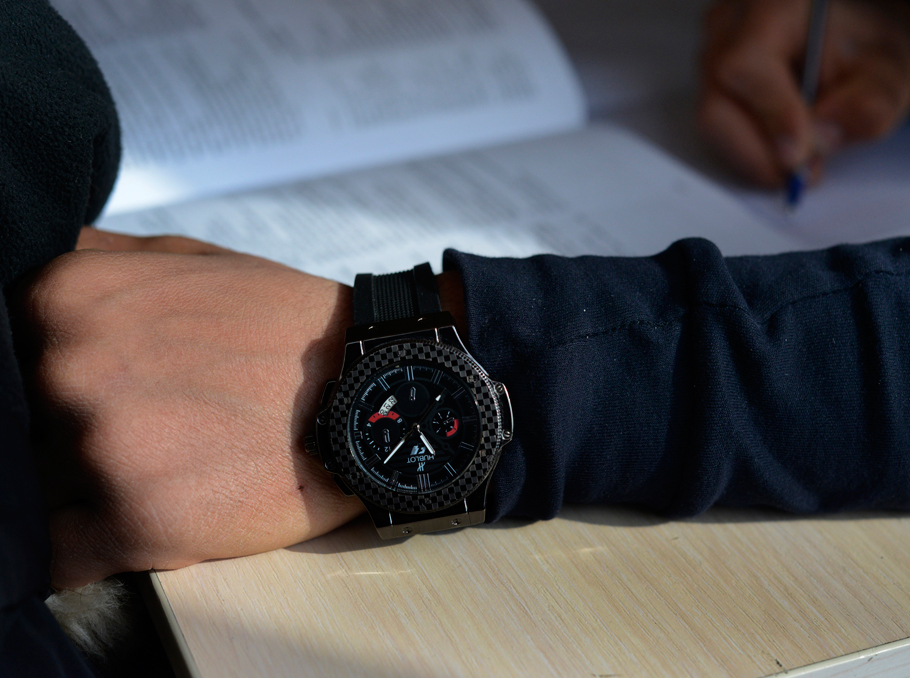
Photo: Vaghinak Ghazaryan/Mediamax
“They distributed boxes to us, with the help of which we were supposed to present the ideal school in our view. Many students pictured a beautiful building, but what’s important for me is the prevalence of equality, mutual understanding and solidarity, strong teacher-student relations, so that teachers not only introduce the lesson, but explain every single detail before leaving the classroom. I was amazed seeing how Indians respect and listened to each other with patience. I would like to have similar system in Armenia,” said Burastan, presenting her dream school made of cardboard.
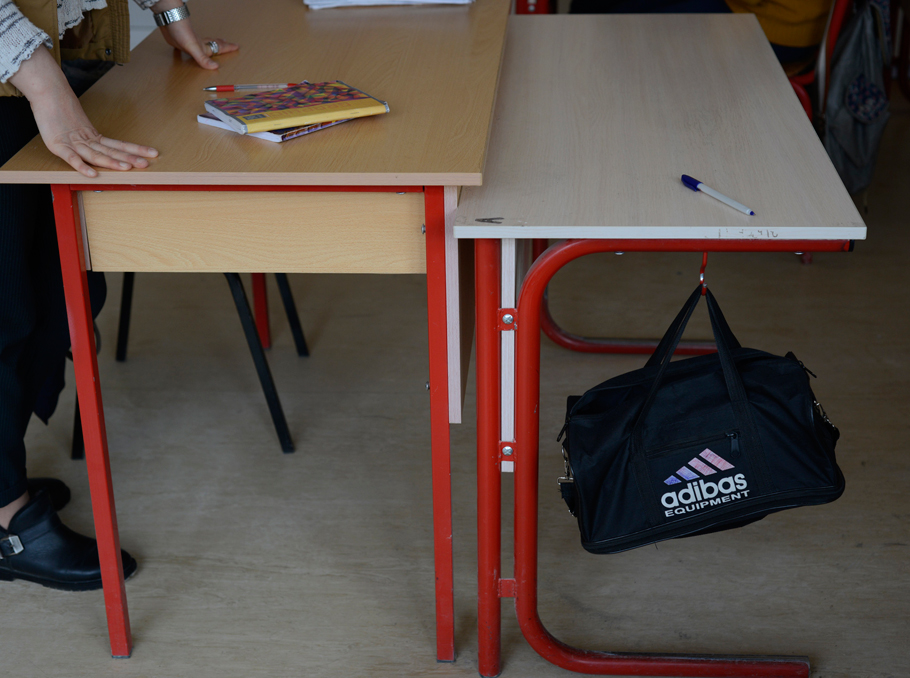
Photo: Vaghinak Ghazaryan/Mediamax
In 2014 Burastan’s family returned to Armenia because of the war in Ukraine, where she used to live. She has an opportunity to compare not only cultures and lifestyles of different countries, but also the educational systems. She says that it was harder to study in Ukraine, as the subjects were taught more in depth with special emphasize on foreign languages. English is the third foreign language in Getashen Secondary School after Russian and German, and it isn’t taught from high school. All her knowledge of English comes from Ukraine, and now Burastan continues to learn the language on her own. She has decided to pursue a career in foreign languages after finishing school.
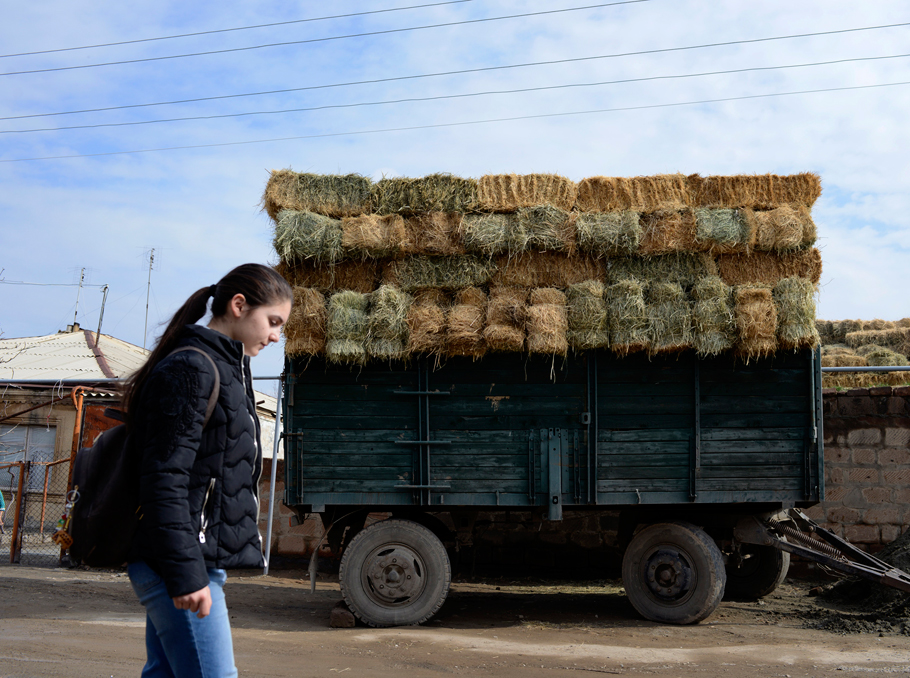
Photo: Vaghinak Ghazaryan/Mediamax
Diana hasn’t made her decision on future career yet, but she has a number of interests. She attends Tumo, does photography, programming and shoots short movies. According to her, Ms. Gazaryan encourages her and her classmates in every beginning. English has become her favorite subject thanks to Ms. Ghazaryan.
Nare enjoys the love of her students and smiles remembering the first meeting and difficulties during the first months.
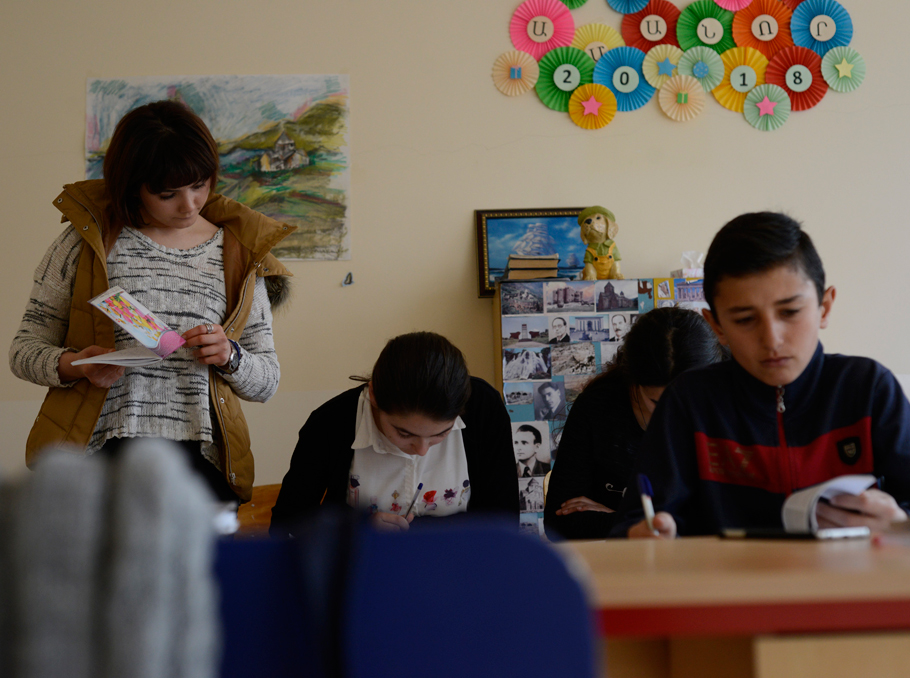
Photo: Vaghinak Ghazaryan/Mediamax
“Together with Varduhi (Teach For Armenia Fellow) I was sitting at the garden of the school, when children came to receive their books in August of 2016. They asked: “Are you going to be our English language teacher?” They tried to frighten us by saying “You know, ours is the naughtiest class here.” Varduhi and I looked at each other and laughed, as we came exactly for those difficulties. After two years, they are now trying to find ways for keeping us here.”
When we come to the school every morning, children from the 4th grade tap on the window to welcome us, and we wave to greet them like queens. We have twins in the class, both with short haircut. One of the teachers made a remark for not fastening their hair, to which the girls answered: “We want to be like Ms. Ghazaryan.”
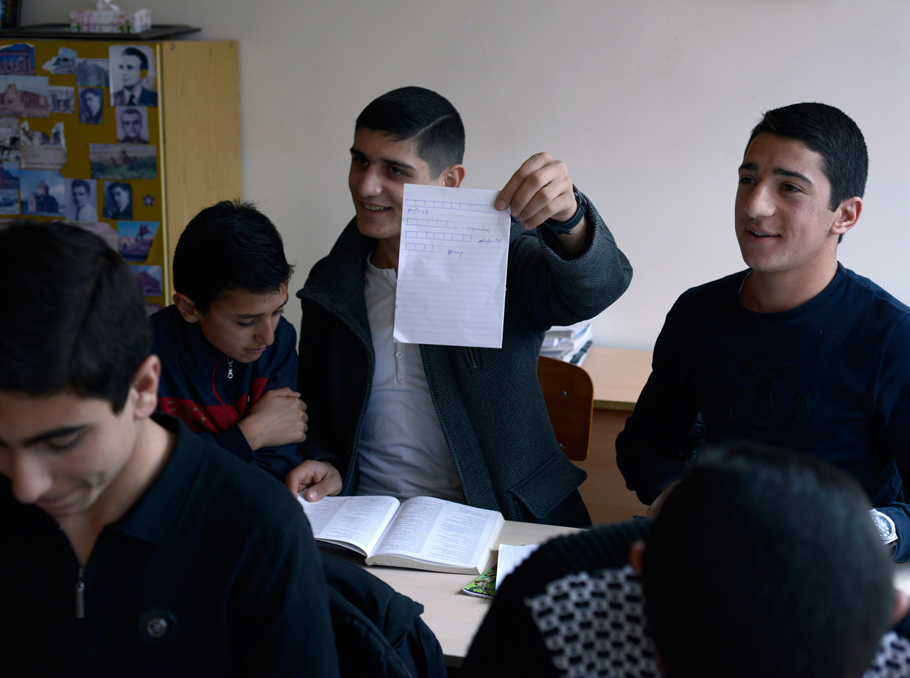
Photo: Vaghinak Ghazaryan/Mediamax
Nare says that it was very difficult at the beginning, especially during the first three months, when they lived in the village (then they moved to Armavir). Teaching English at a school was a serious responsibility and challenge for a marketing research specialist. Besides, she had to deal with tough household conditions. Nare’s family didn’t approve her decision to move to Armavir. They were sure she wouldn’t make it and would just give up one day. “I spoke to my brother a few days ago and said to him: “See? I did it.”.”
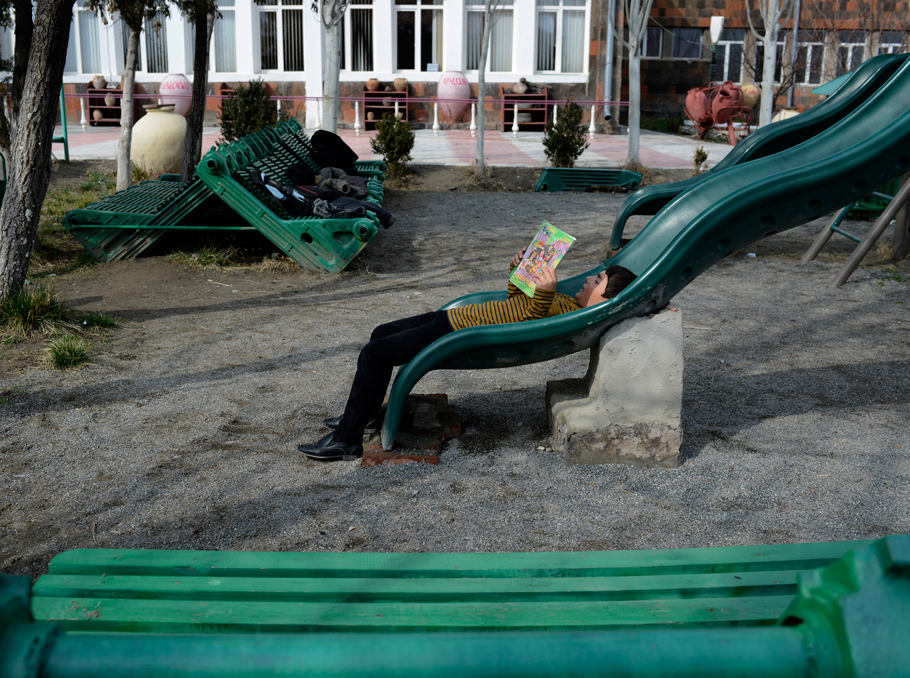
Photo: Vaghinak Ghazaryan/Mediamax
Nare spoke about how she was constantly in search of new methods for teaching until she understood what she wanted to give to these children.
“You always want to provide the best for the kids, especially during the second year, when you have little time left and you don’t want to miss anything. I asked myself and God about what else I could give to these children. And then I understood that the only answer to this question was love. They will get a lot of useful information from various places, they can even learn English otherwise. What they need most at this stage is love, they need to know that despite harsh conditions and other challenges, there are people who love them and those people are right here at school.”
Burastan and Diana returned from India motivated with new ideas. They share new impressions with classmates now when the memories are still fresh. Burastan applies her knowledge in action by having prepared a photo collection from India to make the stories live and convincing. She tells the students and teachers about the importance of equality and respect, the ability to listen and express your own views without ever being afraid to fail.
Lusine Gharibayn
Photos and videos by Vaghinak Ghazaryan (for Mediamax)
VivaCell-MTS is the general partner of the project ![]()









